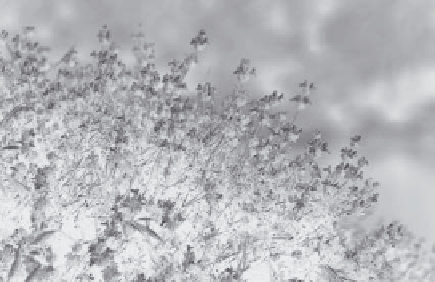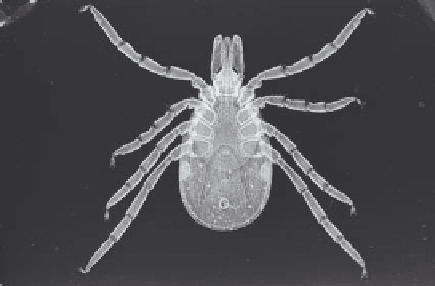Environmental Engineering Reference
In-Depth Information
example is provided in the north Atlantic where the size at which cod mature has suffered a dramatic
decline as a result of heavy fi shing pressure. The consequences for harvest yields can be pro-
found and managers need to devise harvesting rules that counteract this evolutionary trend
(Section 7.4).
3 Applications at the level of communities and ecosystems
Succession theory - nursing a community back to health
Source: Kalpana Kartik/Alamy.
After a disturbance, such as a hurricane, volcanic eruption or forest clearance for agriculture, the
community proceeds through a predictable successional species sequence until mature forest is
regained. A dilemma for managers wishing to restore Mediterranean forest was whether to remove
or
encourage the pioneer shrubs in the succession. By-passing the early species might speed up
the transition to forest, but not if the shrubs
facilitate
the success of later species in this hot, dry
region. In fact, experiments showed that the pioneer shrubs act as 'nurse' plants for the vulnerable
tree seedlings, shading and protecting them from the scorching Mediterranean sun. When pioneer
species are facilitators of successional change the management prescription must be to leave them
in place (Section 8.2.5).
Food web theory - minimizing human disease risk
Source: PHOTOTAKE Inc. /Alamy.
If left untreated, Lyme disease can damage heart and nervous system and lead to a type of arthritis.
The illness is caused by the bacterium
Borrelia burgdorferi
, which is carried by ticks in the genus
Ixodes
and transmitted when the tick feeds, fi rst on small animals such as the white-footed mouse,
and later on large mammals, including people wandering through the forest. In unusual years of
massive acorn production by oak trees, the mouse population thrives and the parasite-host dynam-
ics are such that two years later the risk of Lyme disease is considerably increased. This knowledge
helps forest managers to provide a timely warning to hikers. Many small animal species are hosts









Search WWH ::

Custom Search